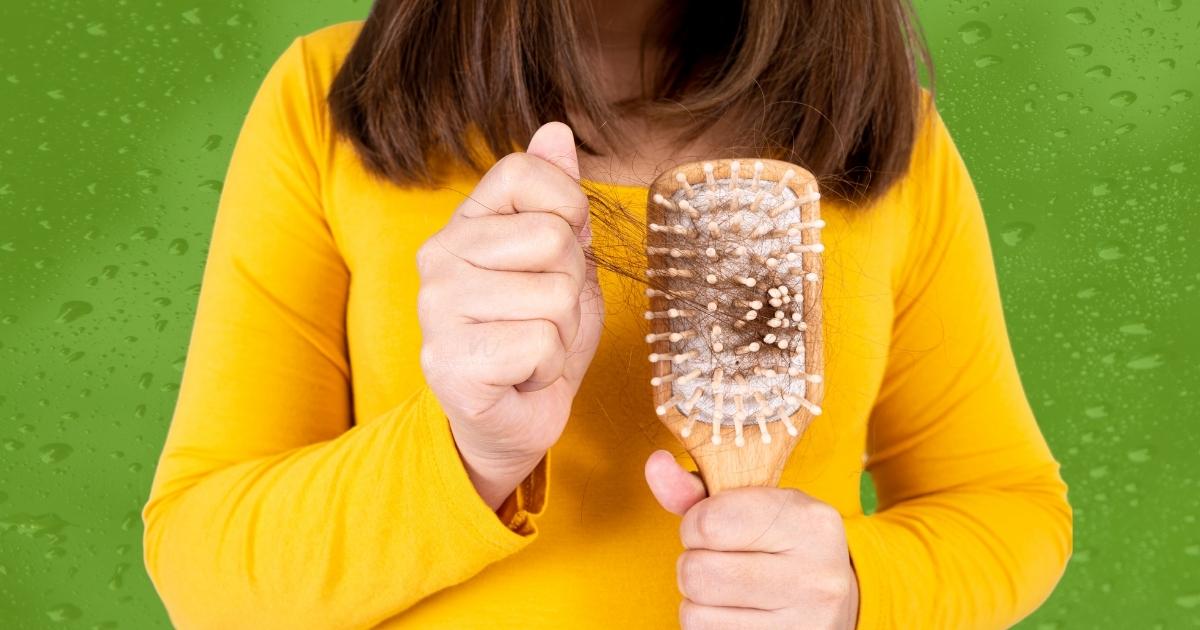The monsoon season brings the long-awaited relief from the summer heat, washing the air clean and reviving the environment. But while nature feels refreshed, our hair often suffers — becoming limp, greasy, frizzy, and prone to hair fall. The rising humidity in the air causes the scalp to sweat, produce excess oil, and weaken hair roots, resulting in seasonal hair fall that affects most people during the rains.
If you're searching for effective ways on how to prevent hair fall in monsoon, you’re in the right place. This blog breaks down the root causes, hair-type specific care routines, and a nutrient-focused hair diet to keep your strands strong, nourished, and monsoon-ready.
Why Hair Fall Increases in Monsoon
Studies suggest that hair fall increases by 30% during monsoon due to excess humidity in the air. The moisture leads to hydrogen absorption, causing hair to swell and become weak. As the scalp loses its natural oils, it becomes dry and irritated, creating an environment for fungal growth and itchiness — which further contributes to scalp infections and dandruff.
Common Reasons Behind Hair Fall During Monsoon:
-
Humidity: Weakens hair structure and makes roots fragile
-
Genetics: Hereditary thinning triggered or worsened by weather
-
Acid Rain: First showers often carry pollutants that damage hair
-
Hair Dryer Use: Excessive or improper use damages wet, delicate strands
-
Nutritional Deficiencies: Seasonal illnesses may impair nutrient absorption
Know Your Hair Type Before You Treat It
Before applying any products or tips, it’s essential to understand your hair type, as monsoon hair care varies based on whether you have dry, oily, or normal hair.
Oily Hair
How to identify:
-
Hair feels greasy a day after washing
-
Lacks volume or bounce
-
Excess sebum makes scalp itchy and promotes dandruff
Why it worsens in monsoon:
Humidity increases sebum production, leading to clogged follicles and accelerated hair fall.
Dry Hair
How to identify:
-
Frizzy strands and split ends
-
Hair breaks easily and looks dull
-
Rough texture with minimal shine
Why it worsens in monsoon:
Dry scalps become itchier, and constant dampness strips the hair of its protective oils.
Normal Hair
How to identify:
-
Balanced oiliness and minimal scalp issues
-
Natural shine and softness
-
Rarely experiences breakage or itching
Why care is still needed:
Even normal hair needs maintenance to prevent fungal infections and product buildup in this season.
Hair Fall Prevention Tips Based on Hair Type
Tips for Oily Hair:
-
Use a 100% natural shampoo daily to remove grease and dirt without harming the scalp’s pH.
-
Dry your hair using a microfiber towel to reduce friction and breakage.
-
Apply conditioner 2–3 times a week only to the hair length—not the scalp—to reduce oil buildup.
-
Oil once a week using N4N's lightweight Scalp Potion to nourish without clogging pores.
Tips for Dry Hair:
-
Wash your hair 3–4 times a week with a hydrating herbal shampoo.
-
Avoid heat styling and chemical-based products.
-
Condition hair every time after washing to lock in moisture and reduce frizz.
-
Oil your scalp 2–3 times a week with Growth Potion Hair Oil and leave it on for 1–2 hours.
Tips for Normal Hair:
-
Shampoo 2–3 times a week to maintain cleanliness without stripping natural oils.
-
Apply conditioner after every wash to prevent moisture loss from humidity.
-
Use a microfiber towel or air dry hair gently.
-
Oil once or twice weekly to maintain scalp health and prevent seasonal dryness.
Recommended Hair Diet During Monsoon
Monsoon infections can compromise your immune system and nutrient absorption, indirectly increasing hair fall. A healthy scalp starts from within.
Foods That Prevent Hair Fall:
-
Leafy greens, beetroot, pomegranate – Rich in iron and antioxidants
-
Almonds, walnuts, pumpkin seeds – Packed with zinc and omega-3s
-
Protein-rich foods – Include eggs, paneer, Greek yogurt, lentils, and tofu
-
Hydration – Drink 8–10 glasses of water daily to flush out toxins
-
Avoid junk food – Processed foods worsen inflammation and scalp sensitivity
For a deeper understanding, check out our article: Which Vitamin Deficiency Causes Dandruff?
Common Hair Fall Mistakes to Avoid in Monsoon
-
Using a hairdryer every time after getting wet
-
Skipping hair wash after getting caught in the rain
-
Applying too much conditioner or oil to the scalp
-
Using shampoos with harsh sulfates or parabens
-
Ignoring itchiness, scalp buildup, or minor infections
Conclusion
The rainy season demands an extra dose of care, especially when it comes to your scalp. But the good news? You don’t need expensive treatments or complicated routines to manage hair fall during monsoon.
Just remember:
-
Identify your hair type
-
Stick to a scalp-specific routine
-
Use natural, chemical-free products
-
Stay consistent with your diet and hydration



